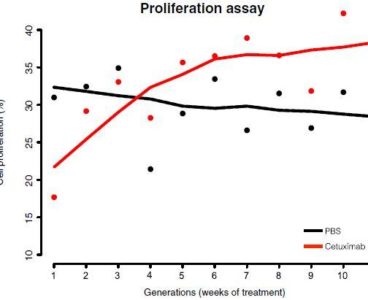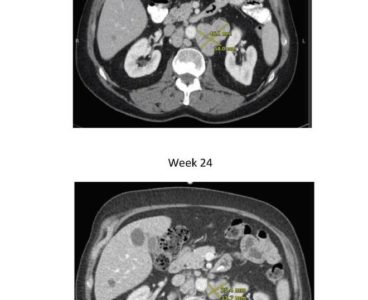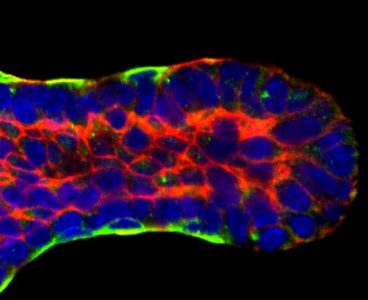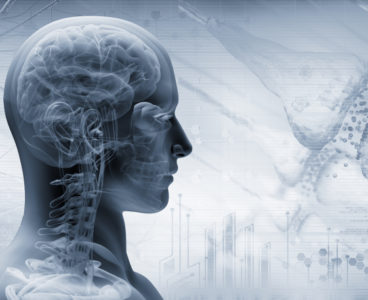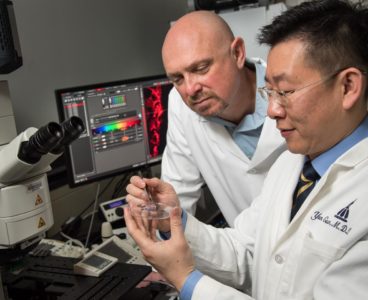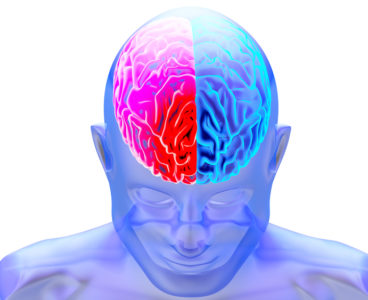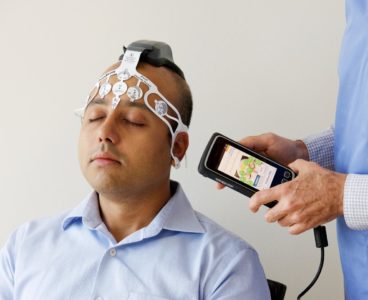
3D Virtual Simulation Gets to the ‘Heart’ of Irregular Heartbeats
In a proof of concept study, scientists at Johns Hopkins report they have successfully performed 3D personalized virtual simulations of the heart to accurately identify where cardiac specialists should electrically destroy cardiac tissue to stop potentially fatal irregular and rapid heartbeats in patients with scarring in the heart. The retrospective analysis of 21 patients and…
Severe Preeclampsia Heart Imaging Study Reveals Roots of Cardiac Damage in Pregnant Women
Computer Algorithm Maps Cancer Resistance to Drugs, Therapy
New methods of studying the evolution of treatment resistance in head and neck cancer are being developed by researchers at the Johns Hopkins Kimmel Cancer Center. The scientists wanted to examine how cancers acquire resistance to treatment over time and whether those changes could be modeled computationally to determine patient-specific timelines of resistance. The research…
Lethal Prostate Cancer Treatment may Benefit From Combination Immunotherapy
3D Imaging and Computer Modeling Capture Breast Duct Development
Working with hundreds of time-lapse videos of mouse tissue, a team of biologists joined up with civil engineers to create what is believed to be the first 3D computer model to show precisely how the tiny tubes that funnel milk through the breasts of mammals form. A report on the model was published April 9 in Developmental Cell.…
Decoding the Brain’s Learning Machine
Direct Electrical Current Used to Preferentially Inhibit Pain-Transmitting Neurons
Using computer models and laboratory rats, Johns Hopkins researchers have demonstrated that “direct electrical current” can be delivered to nerves preferentially, blocking pain signals while leaving other sensations undisturbed. The researchers say the experiments advance the search for improved implantable devices able to treat chronic pain that is due to peripheral nerve injury or disease.…
Researchers Use AI Technology to Chart Immune Cell Receptor
Liquid Biopsy Results Differed Substantially Between Two Providers
Topical Gel Made From Oral Blood Pressure Drugs Shown Effective in Healing Chronic Wounds
An international team of researchers led by Johns Hopkins has shown that a topical gel made from a class of common blood pressure pills that block inflammation pathways speeds the healing of chronic skin wounds in mice and pigs. A report of the findings, published Oct. 16 in the Journal of Investigative Dermatology, marks efforts to…
Fossil Evidence Suggests Humans Played a Role in Monkey’s Demise
Radiocarbon dating of a fossilized leg bone from a Jamaican monkey called Xenothrix mcgregori suggests it may be the one of the most recent primate species anywhere in the world to become extinct, and it may solve a long-standing mystery about the cause of its demise. The short answer: human settlement of its island home.…
Low Levels Of “Memory Protein” Linked to Cognitive Decline in Alzheimer’s Disease
Quickly Assessing Brain Bleeding in Head Injuries Using New Device
Researchers have shown that a hand-held EEG device, FDA approved in 2016, can quickly and with 97 percent accuracy rule out whether a person with a head injury likely has brain bleeding and needs further evaluation and treatment. According to the Centers for Disease Control and Prevention, about 2.5 million Americans each year show up…
First Fully Artificial Yeast Genome Has Been Designed
An ‘Ignition Key’ Revs Up DNA Shuffling to Make Antibodies
Ultrasound Pulses Trigger Drug Release from Nanoparticles
Biomedical engineers at Johns Hopkins report they have worked out a noninvasive way to release and deliver concentrated amounts of a drug to the brain of rats in a temporary, localized manner using ultrasound. The method first “cages” a drug inside tiny, biodegradable “nanoparticles,” then activates its release through precisely targeted sound waves, such as…
Experiments in Mice May Help Boost Newly FDA-Approved Therapy for Spinal Muscular Atrophy
Study Shows Blood Products Unaffected by Drone Trips
In what is believed to be the first proof-of-concept study of its kind, Johns Hopkins researchers have determined that large bags of blood products, such as those transfused into patients every day, can maintain temperature and cellular integrity while transported by drones. In a report about the findings, published ahead of print in the journal Transfusion in…
Nanofiber Coating Prevents Infections in Artificial Joints
Altering The ‘Flavor’ of Humans Could Help Fight Malaria
Scientists Track Metabolic Pathways to Find Drug Combination for Pancreatic Cancer
25 Little Bones Tell Puzzling Story about Early Primate Evolution
A cache of exquisitely preserved bones, found in a coal mine in the state of Gujarat, India, appear to be the most primitive primate bones yet discovered, according to an analysis led by researchers from The Johns Hopkins University and Des Moines University. Their assessment of the bones, belonging to ancient, rat-sized, tree-dwelling primates, bolsters…



